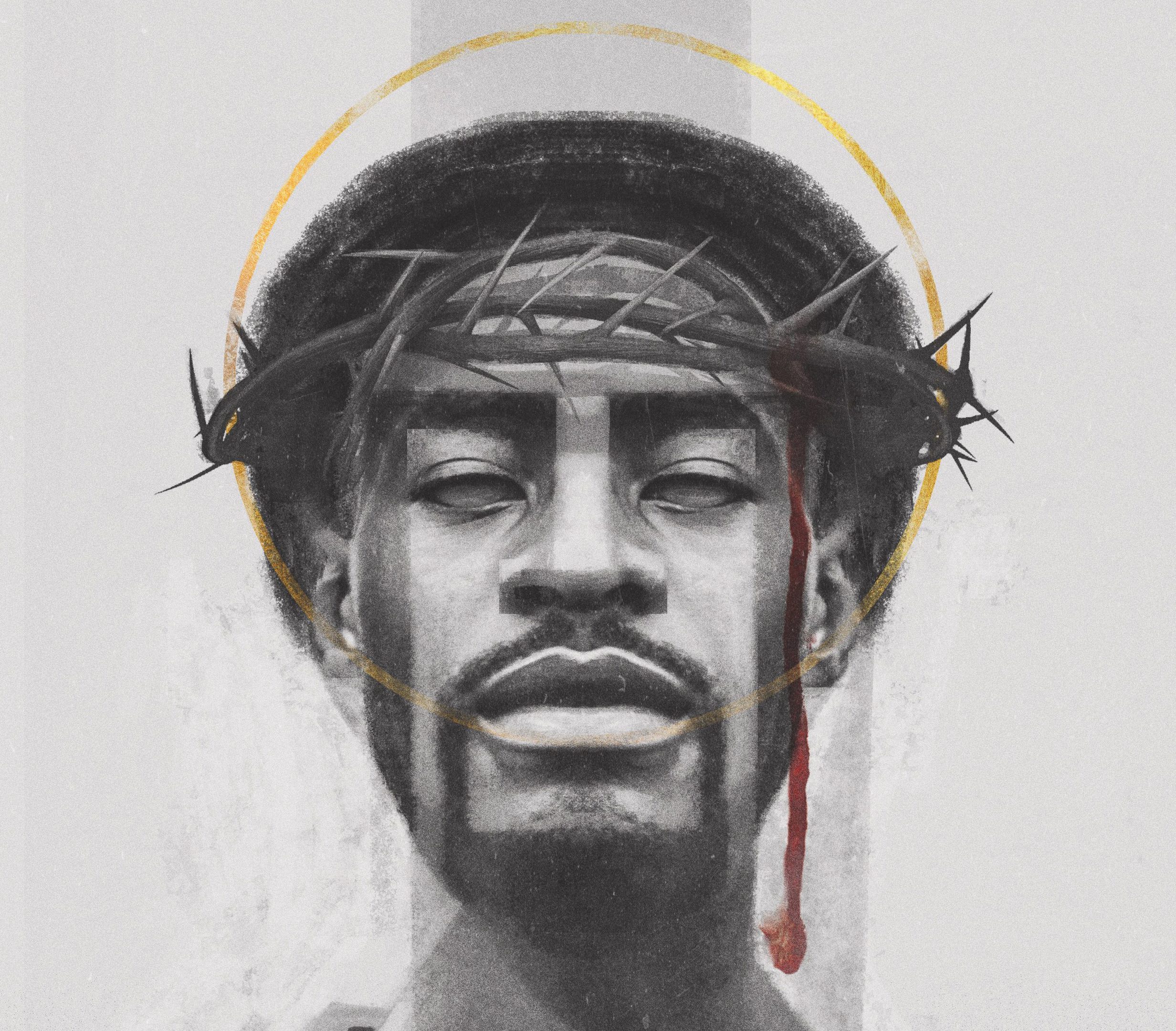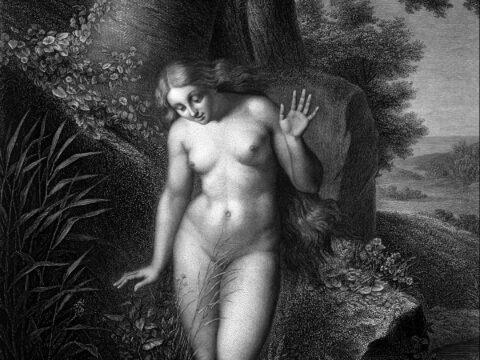There was a point in my life when my staunch belief in God had me read the entire Bible. I found strength in the reminders that the abuse, financial hardship and all the other struggles I endured were part of God’s wonderful plans to prosper me and not to harm me, as I read in Jeremiah.
I waited for those plans for more than a decade in my home country of Zimbabwe. I continued to pray, sometimes on an empty stomach since I believed fasting would help me break those chains that tied me to a life of pain and lack. This was until I ended my relationship with God and Jesus in 2015.
You may unsubscribe from any of our newsletters at any time.
More on Broadview:
- White Jesus is grounded in colonialism. Black Jesus is rooted in liberation.
- How Jesus became white — and why it’s time to cancel that
- As a married, queer Catholic, I don’t know how much more hurt I can take
At the time, I had already stopped going to church because studies kept me busy. I am queer, and I was also unsure of my place in a church where many people believe homosexuality is a sin. (I had thought this, too, and unsuccessfully attempted to “pray the gay away.”) But when I broke up with God, it wasn’t because I was queer and didn’t feel God’s love and acceptance. It was because I felt God had dangled salvation in front of me like a carrot while my own life resembled a battlefield.
I turned to Facebook as an outlet for all my emotions. Interestingly, as I questioned and rejected the existence of God, Jesus and what I had been taught about Christianity, some of my Black Facebook friends were questioning and rejecting the portrayal of Jesus as a white man. According to them, not only was this portrayal inaccurate, but it upheld the narrative that white is superior.
I had called things off with my faith, and here I was faced with this truth: Jesus of Nazareth can’t have been the white man Warner Sallman depicted in the famous Head of Christ. Not once had it occurred to me that there was a misalignment between the biblical descriptions of Jesus and how he was represented in the images that hung in nearly every church I had attended. In Revelation, it says his feet were like bronze! But I didn’t notice this discrepancy until I paid attention to the arguments raised by my Facebook friends.
My belief in him aside, I can accept the representation of Jesus with dark skin for geographical and historical accuracy. However, I struggle to accept Jesus’ Blackness on a spiritual level. This is because my experiences navigating an anti-Black world tell me Jesus doesn’t represent me and isn’t fighting for me.
Jesus presented as white makes sense to me because then he reflects those he seems to support. White supremacy has continued to thrive and to benefit white people, while Black people continue to fight for their freedom. Despite what the Bible says, Jesus does not seem to hear the cries of Black people who endure suffering born out of colonialism and perpetuated by neo-colonialism.
If you look at Africa, the majority of people living in it are Black. And several African countries, including my own, are riddled with poverty, drought or conflict. We can argue that leaders have a hand in all this, but one also wonders: where is the deity in this suffering? If Jesus is the blue-eyed, blond-haired white man as he is usually portrayed, I’m able to reconcile how he allowed his word to be used to enslave people who look like me.
On a personal level, Jesus being Black would also mean that I was let down by two Black fathers. I consider Jesus a father, since Jesus and God the Father are one. But, in my experience, Jesus wasn’t a father who provided or protected. Instead, he had become just like my biological father.
I endured years of emotional abuse from a man who maligned my achievements while disregarding my efforts to win his affection, which ought to have come unconditionally. By the time he died when I was 12, I had decided I wouldn’t shed a tear. His death wasn’t a loss. It was a relief from the pain of having a father who was there but wasn’t really there. Rapper Tupac Shakur said it best in his song Dear Mama: “My anger wouldn’t let me feel for a stranger.”
Decolonizing Jesus’ image hasn’t made the deity any more relatable to me. In fact, it is a painful reminder that writer Zora Neale Hurston was correct when she said “all my skinfolk ain’t kinfolk!”
***
Joyline Maenzanise is a writer based in Bulawayo, Zimbabwe.
This story was first published in Broadview’s April/May 2021 issue with the title “I Cannot Accept Jesus’ Spiritual Blackness.”












There are many reasons people lose their faith in God/Christ.
I like to use Mark 4 and the parable of the sower to illustrate.
The first reason is that the person never had faith in the first place. These are the people who say, “Sure if you want to believe go ahead. But I want to do my thing.” The second reason (which I never liked as it goes against trust in people) are those who pretend to be followers of God and Christ. Sometimes we’re good at fooling others, pretending we have a great relationship with God, Christ and other Christians. But we only fool ourselves, we definitely don’t fool God. When things don’t go our way, we give up. If God doesn’t meet our demands, then He is not worthy of our worship. God only promises to meet our needs.
“Give us this day our daily bread.” It isn’t “Set us up before the buffet table.”
The third reason, we become so blessed we start worshipping the blessing, rather than the One who blesses.
This to me is a big problem in our Western culture (including “blacks”). We have it so good, that when we see others with greater blessings we get envious and jealous. With that we turn on God and against fellow believers. We learn to hate the world (which already hates us) when we are called to love (that includes warning others of wrong doing, 1 Corinthians 13).
God never promises prosperity, He promises Eternal Life. He also promises food in our bellies and clothes on our backs. (Matthew 6:25-34)
Remember YOU broke up with God, He promised never to leave you or forsake you. If you change your mind, He’s waiting just like the father was for the prodigal son. (Luke 15:11-32)
As I suggested in the other article, does it matter if He’s black, white or asian? What was His real purpose?
Personally I have ideas (which may be wrong) why you have issues in life and faith. You equate your struggles with your earthly father as being the same as your Heavenly one. You need to reconcile that the one is very much different than the other.
Joyline
Thank you for sharing from your heart and your experience. I, too, as an ordained minister have struggled and continue to struggle with many things in my religious background. When I read the Bible I see oppression, pain, suffering, conquest and misery. However, when I read about Jesus I see what Jesus taught; love, acceptance, forgiveness, sharing and an ongoing and developing relationship with God. For me, it’s not who Jesus was or what Jesus may have looked like, it is the teaching that matters. And, the teaching is an ideal that, as Christians, we should strive to live up to. Unfortunately, I feel, we have much in our so called holy book that shouldn’t be there….it makes for great mythology but it allows folks to pick and choose only what they want to see.
Over time I have dropped the ceremony, stopped going to church, and have come to a place, spiritually, where I was in my early 20s…..just God and me and a partner with whom I have been blessed. My faith is simple. I speak to God the way I would speak to anyone. I get angry at God. I pray my own prayers. Some get answered in a way that I like and some don’t. I am aware that we are products of the creative force of nature and if we choose to call that “God” that’s OK. I have come to an accommodation that I am a biological being who tries to live up to the nobler attributes of humanity taught by Jesus and others in a world where there is so much pain and hate and misery. When I was told, over and over through the years that “God is love” I merely thought in my mind “where is this love when millions of people live in misery?” And I learned that you can’t really argue with fundamentalist Christians so I learned to be quiet. One day in Confirmation class a young girl asked me if Jesus could be female and as I thought about the ideals Jesus taught I said “Why not?”
You see, we will always have hate in the world….I don’t know why we have it but it seems to be built in to many people and fueled by corruption in politics, business and everything else or so it seems. What we have to do is to try and live by the teachings knowing that God lives within us and we live within God. And, one of the things I used to preach and still live by is to stay away from those who are a vexation to my soul. It means that I don’t have many friends BUT I am a lot happier. Once again. Thank you for sharing. The spiritual path…..not the religious path…is a struggle and an adventure.
God created you and me. I started out in difficult circumstances as many have and in my old age I have been blessed. And once again I have been blessed by your story.
Every day I awaken and see what I have I am grateful but I also have the awareness that it can all change in an instant. All we really have is what we have NOW.
When in school I also saw the painting of Jesus as a white guy with somewhat Nordic features and long well dressed hair and blue eyes. I’ve always been somewhat of a critical thinker, however, and when at an early age I encountered real people who actually came from the middle east I began thinking about this piece of art and realized that this can’t possibly be how Jesus looked. There were no cameras in Jesus’ day. Nobody at the time painted a portrait of him. These are artist’s interpretations. That was probably my first realization that what many folks profess to believe is not necessarily so. And so began my spiritual quest; and it has been an adventure that continues to this day. I must admit that my idea of God is different than many people’s idea of God but it works for me and, to me, that’s what matters. I do, however, try to live by the ideals of Jesus: Love, acceptance, forgiveness, sharing, treating others equally. To me these are the things that really matter in one’s life. These ideals have been taught by others across cultures but we can only apply them to ourselves and to our own actions. We must be the change that happens in the world.